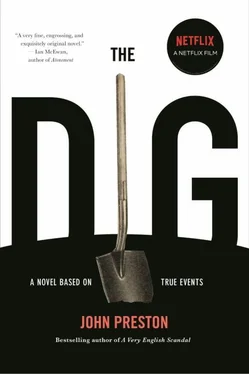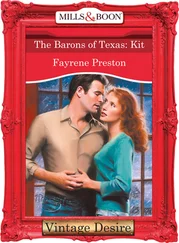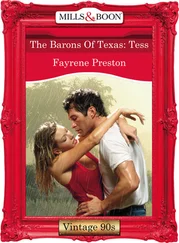“Can you tell if the mound has already been robbed?”
He shook his head. “Much too early to say. Mind you, we’ve already found something.”
He walked over to where a long gray object lay on the grass and aimed a kick at it with his boot.
“What is that?”
“That’s a stone, Mrs. Pretty. It must be what I hit with your — your instrument. It’s a start, I suppose, but let’s hope we can do a little better than that, eh?”
I started to walk back to the house. When I glanced over my shoulder, I could see no sign of Mr. Brown. He must have resumed digging. There was only the glint of his shovel blade and a dark smudge of soil hanging in the air.
At seven o’clock I went upstairs to change for dinner. Ellen was waiting in my bedroom. She is a big-boned girl with unusually pale fingers, the result, presumably, of poor circulation. In the winter she suffers from chilblains. When she started working for me two years ago, I was concerned that she might be clumsy. In fact, she has turned out to be far more attentive and nimble than I ever expected. My only criticism is that she has recently taken to wearing a particularly invasive scent which manages to be sharp and cloying at the same time.
She was standing beside the open cupboard. Rows of dresses were hanging inside, most of them still in their muslin dust-covers.
“What would you like to wear tonight, ma’am?”
I pointed at one of the dresses that was not in a cover. There seemed no point going to any more trouble than necessary.
“The green silk again, ma’am? That’s an old favorite, that one, isn’t it?”
As she was helping me to put the dress on, Ellen chattered away about members of the staff and what they had been up to. To begin with, I also feared that I might find her talkativeness trying. Instead, I have rather come to enjoy our conversations, even to look forward to them. Apart from anything else, I learn far more about the household from Ellen than I ever could on my own. Although she is not a gossip, she has a natural curiosity about people, as well as a keen ear for their idiosyncrasies. On the subject of her own circumstances, however, she is rather less forthcoming. For several months she was stepping out with a boy from Woodbridge. However, it has been some weeks now since she last mentioned him and so I suspect this is no longer the case.
Once we had finished, she asked if I wanted her to repin my hair. I said that would not be necessary.
“I could just give it a quick comb if you like, ma’am.”
“No, thank you, my dear.”
I wonder if Ellen has noticed that I am losing my hair. She can scarcely have failed to do so. But while she may be something of a chatterbox, there is a natural discretion about her too. It is another of her virtues.
At eight o’clock, Grateley knocked on the swing door that leads out from the dining room to the kitchen. For such a bony man, it never ceases to surprise me that he should have such a cushioned-sounding knock. It is as if he has little pillows on each of his knuckles. Silently, he brought the tureen into the dining room and carried it over to the table.
After Grateley had ladled out the soup, he asked me if I wanted to listen to the news. In anticipation of my saying yes, he had already moved over to the sideboard and was about to lift the lid of the wireless. However, I had no desire to listen to the news; it was certain to be alarming or depressing, or quite possibly both. Instead, I told him that tonight I would rather read.
When he had gone, I opened my copy of Howard Carter’s account of the excavation of the tomb of Tutankhamun and propped it against the tureen. Increasingly, I have found myself reading about the past. It is a retreat, of course. I know that. Nonetheless, there is something peculiarly comforting in reading about events that have already happened. This as opposed to those that seem to hang, half-formed, above one’s head.
Once again I read Carter’s description of the discovery of the king’s burial chamber:
For the moment, time as a factor in human life has lost its meaning. Three thousand, four thousand years maybe, have passed and gone since human feet last trod the floor on which you stand, and yet, as you note the signs of recent life around you — the half-filled bowl of mortar for the door, the blackened lamp, the finger-mark upon the freshly painted surface, the farewell garland dropped upon the threshold — you feel it might have been but yesterday.
Grateley brought in the main course: boiled beef with carrots. The smell rose from the plate. As it did so, my gorge rose with it. Partly to put off having to start eating, I asked after Grateley’s wife — she works as a nurse at the cottage hospital.
“She’s quite well, thank you, ma’am.”
“And you, Grateley, how are you?”
“I too am quite well,” he allowed.
“Is your lumbago any better?”
“Still playing up a little, ma’am. But nothing to complain about.”
When he had gone, I could only manage a few mouthfuls before I had to push the plate away. Afterwards, I started reading again, but I was unable to concentrate. All the while my thoughts kept returning to Frank. In one sense, I felt an enormous sense of relief at finally embarking on something that meant so much to him. In another, of course, doing so only made his absence more acute. Not for the first time, it struck me how this excavation was like a form of disinterment.
Yet even as these thoughts ran through my mind, I had a sense of everything fading. Memories fleeing as I attempted to clutch on to them. Still staring at the open book, I recalled how Carter had written that he could remember little or nothing of the actual moment when he had stood looking into the burial chamber. All these impressions had crowded in on him to such an extent that not one of them had lodged. Looking back several months afterwards, he found to his dismay that his mind was quite blank.
Grateley’s face was as impassive as always as he cleared my plate away. “Would you thank Mrs. Lyons for me?” I said. “The beef was delicious. It’s just that I don’t appear to have much of an appetite at the moment.”
“I expect it is this weather, ma’am.”
“Yes,” I agreed. “I expect it is.”
“Will there be anything else?”
“No. That will be all, thank you.”
“I’ll wish you goodnight, then, ma’am.”
“Goodnight, Grateley.”
Upstairs, I looked in on Robert. Recently, for reasons that are still a mystery to me, he has become obsessed with making drawings of the Matterhorn. When I asked him why, he did not reply. Instead, his shoulders seemed to fold towards one another, as if he was shutting himself from my gaze. These drawings are identical, or nearly identical; I assume because they have been copied out of a book. A number of them had been pinned to the wall. They lifted in the breeze when I opened the door.
Robert was asleep and had thrown off most of the blankets. One of his feet was exposed, the white bulb of his heel sticking up in the air, the toes bent against the mattress.
I covered his foot with one of the blankets, then kissed him on the forehead. He gave a small grunt — it was almost a sigh — but did not stir.
On the following afternoon I was told that Mr. Maynard from Ipswich Museum had come to pay a visit — Mr. Maynard is the curator of the museum and effectively Mr. Reid Moir’s deputy. According to Grateley, he had gone straight out to the excavation rather than come to the house and risk disturbing me. I decided that I would also go and see how Mr. Brown was getting on.
During the night it had rained and the grass was still slippery. I had to be careful where I put my feet. Hearing a yell, I looked up to see Robert running towards me. Around his head he had what appeared to be an elastic garter with several feathers stuck in it. I watched him come closer, rooted to the spot. All the time I was waiting for him to stop. However, he just kept coming. His arms were outstretched, his mouth open wide and his cheeks full of air.
Читать дальше












